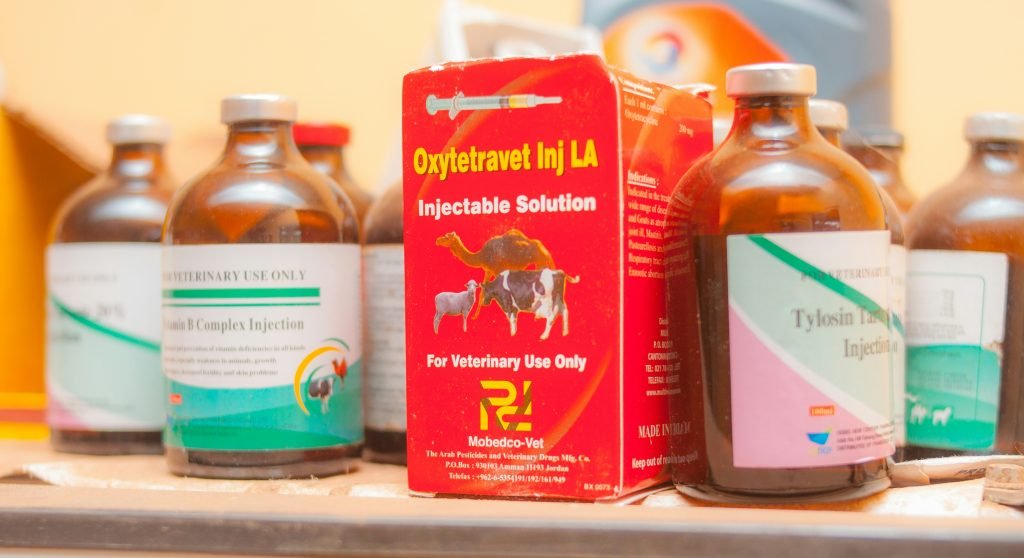Are you finding yourself in a situation where your medication supply is running low and you’re concerned about being able to afford a refill? Perhaps you’re wondering if there’s a way you can make the most out of the pills you already have by splitting them or adjusting your dosage. In this article, we will explore whether these options are safe and feasible ways to stretch your medication supply.

This image is property of images.unsplash.com.
Understanding Pill Splitting
What is pill splitting?
Pill splitting refers to the practice of dividing a higher-dose medication into two or more smaller doses. This is often done to reduce the cost of medications or to adjust the dosage according to individual needs. It involves physically dividing a pill using a cutting tool, such as a pill splitter, knife, or specialized device.
Benefits of pill splitting
Pill splitting can offer several benefits, including cost savings and flexibility in medication dosages. By splitting pills, you can effectively obtain two or more doses from a single pill, which can help stretch your medication supply and reduce the need for frequent refills. This can be particularly beneficial for individuals on long-term medication regimens or those who rely on expensive medications.
Safety considerations
While pill splitting can be advantageous, it’s important to consider the safety aspects. Not all medications are suitable for splitting, and certain precautions need to be taken to ensure accuracy and maintain the efficacy and safety of the medication. Consulting with your healthcare provider is crucial before starting a pill splitting regimen to ensure it is appropriate for your specific medication and condition.
Medication Dosage Adjustment
Consulting with your healthcare provider
Before considering any medication dosage adjustment, it is essential to consult with your healthcare provider. They are best equipped to assess your medical condition, review your current medication regimen, and determine if any adjustments are necessary. Your healthcare provider can provide guidance and expertise, taking into account your specific needs and any potential risks or interactions.
Adjusting dosage under medical supervision
Dosage adjustment should always be done under the supervision of a healthcare professional. Never attempt to modify your dosage without proper guidance. The healthcare provider may recommend pill splitting or prescribe a lower-dose medication as a suitable alternative. They will carefully assess the potential benefits and risks associated with any dosage adjustments to ensure your safety and optimize your treatment outcomes.
Importance of following prescribed dosages
It is crucial to follow your prescribed dosages to maintain the effectiveness of your medication and ensure your health and safety. While pill splitting can be a useful strategy in certain cases, it should only be done with the approval and guidance of your healthcare provider. Deviating from the prescribed dosages without proper supervision can lead to treatment inefficacy, adverse effects, or potentially dangerous drug interactions.
Pills that can be split
Pills suitable for splitting
Not all pills are suitable for splitting, and it is important to know which medications can be safely divided. Typically, pills that have a scored line, indicating they are designed to be split, are suitable candidates for this practice. These scored pills have been specifically formulated to facilitate accurate splitting. Additionally, certain tablet shapes, such as round or oval, may be more suitable for splitting compared to irregularly shaped or coated tablets.
Types of medications that should not be split
While many medications can be split, there are some that should not be divided. These include:
-
Enteric-coated or extended-release tablets: These types of medications are specially designed to release the active ingredient slowly over time. Splitting these pills can disrupt their time-release properties, potentially leading to improper dosing or ineffective treatment.
-
Capsules: Capsules typically contain powder or granules that cannot be evenly divided, making them unsuitable for splitting. Always consult your healthcare provider to identify an appropriate alternative dosage form or strength.
-
Pre-packaged single-dose medications: Certain medications come in pre-packaged doses, such as blister packs or individual vials. These medications should not be split, as they are specifically formulated for single use.
Guidelines for pill splitting
When pill splitting is appropriate, it is essential to follow certain guidelines to ensure accuracy and maintain the integrity of the medication:
-
Use a pill splitter or other recommended cutting tool instead of a knife or blade. This helps ensure a clean and accurate split.
-
Take precautions to avoid cross-contamination. Clean the cutting tool before and after each use to prevent the transfer of substances that may affect the medication’s stability or safety.
-
Split the pill immediately before consumption to minimize any potential degradation or loss of potency.
-
If the pill does not split evenly or crumbles, do not attempt to reassemble the pieces or use a fragment that doesn’t meet the necessary dosage requirements. Always consult your healthcare provider for further guidance.
Methods and Tools for Pill Splitting
Using a pill splitter
A pill splitter is a device specifically designed to divide pills accurately and safely. They come in various sizes and shapes, making it easier to customize the splitting process based on the specific pill being divided. To use a pill splitter, simply place the pill in the designated compartment and press the lid or blade down to split the pill along the scored line.
Knife or blade method
If a pill splitter is not available, a clean knife or blade can be used as an alternative. However, caution must be exercised to ensure accurate splitting. Place the pill on a flat, stable surface and use the knife or blade to apply even pressure along the scored line. It is important to be careful and steady to avoid slippage and potential injuries.
Specialized pill-splitting devices
In addition to pill splitters, there are specialized devices specifically designed for pill splitting. These devices typically hold the pill securely in place and employ mechanisms, such as springs or blades, to split the pill accurately. They offer greater precision and ease of use compared to the knife or pill splitter method. Some devices may also have compartments for storing the split pills until consumption.
Tips for accurate pill splitting
To ensure accurate pill splitting, consider the following tips:
-
Read the pill’s packaging or consult your healthcare provider to determine if it is suitable for splitting.
-
Use a proper cutting tool, such as a pill splitter or specialized device, to ensure precise division.
-
Split the pill slowly and steadily, applying equal pressure along the scored line.
-
Keep the split pills stored separately if needed, marking them appropriately to avoid confusion.
-
Regularly check the cutting tool for any signs of wear or damage that may compromise accuracy.

This image is property of images.unsplash.com.
Maintaining Medication Efficacy and Safety
Factors to consider when splitting pills
When splitting pills, it is important to consider several factors to maintain the efficacy and safety of the medication:
-
Stability of the medication: Certain medications may lose their potency when exposed to air or moisture for an extended period. Splitting the pill may expose more surface area and potentially impact stability. Consult your healthcare provider to determine if your medication is prone to degradation.
-
Time sensitivity: Some medications need to be taken at specific intervals throughout the day to ensure optimal effectiveness. Splitting a pill may affect the timing of doses, potentially compromising treatment outcomes.
-
Dosage accuracy: Splitting pills requires precision to ensure accurate dosing. Inaccurate splits can result in underdosing or overdosing, affecting the medication’s effectiveness or increasing the risk of adverse effects.
Storing split pills
After splitting a pill, it is important to store the split pieces properly to maintain their integrity and prevent contamination. Follow these guidelines for storing split pills:
-
Use a clean, dry container or pillbox specifically designated for storing medications.
-
Keep the container tightly sealed to prevent exposure to air, moisture, or other environmental factors that may impact the medication’s stability.
-
Label the container with the medication’s name, dosage, and splitting date to avoid confusion.
-
Store the container in a cool, dry place away from direct sunlight, extreme temperatures, and humidity.
-
Regularly check the expiration date of both the original pill and the split pieces. Discard any expired medication.
Ensuring proper dosage intake
It is crucial to ensure proper dosage intake when splitting pills. The split pills should be consumed as recommended by your healthcare provider, following the prescribed dosing schedule. If you experience difficulty swallowing the split pieces, discuss alternative dosage forms with your healthcare provider, such as liquid formulations or smaller strength pills. Never attempt to alter a medication’s dosage form on your own without professional guidance.
Consulting with Healthcare Provider
Importance of professional advice
Before initiating any medication dosage adjustment, it is important to consult your healthcare provider. They possess the expertise and knowledge to make informed decisions regarding your medication regimen. By discussing your concerns and reasons for considering dosage adjustment, your healthcare provider can provide tailored guidance that takes into account your specific medical condition and any potential risks or benefits associated with altering the dosage.
Sharing concerns and reasons for dosage adjustment
During your consultation with the healthcare provider, openly share your concerns and reasons for considering medication dosage adjustment. This will help them understand your personal circumstances, such as financial constraints, difficulty swallowing larger pills, or the need for extended medication supply. By expressing your concerns, you empower your healthcare provider to consider these factors when determining the most appropriate course of action.
Potential risks and benefits discussion
Engage in a thorough discussion with your healthcare provider about the potential risks and benefits associated with any medication dosage adjustment, including pill splitting. Your healthcare provider will consider various factors, such as the stability and time-sensitive nature of the medication, the accuracy and safety of the splitting process, and your individual health status. This discussion will enable both you and your healthcare provider to make an informed decision that balances medication needs and affordability while prioritizing your health and safety.

This image is property of images.unsplash.com.
Risks and Limitations of Pill Splitting
Inaccuracy in dosage
One of the inherent risks of pill splitting is the potential for inaccuracy in dosage. Despite efforts to split pills evenly, variations can occur due to factors such as pill shape, inconsistency in scoring, or human error. Inaccurate doses can lead to inadequate symptom relief or unwanted side effects. It is essential to remain vigilant and consult your healthcare provider if you are unsure about the accuracy of your split pills.
Uneven distribution of active ingredients
Pill splitting can result in an uneven distribution of active ingredients within the split pieces. Some parts may have a higher concentration, while others may have less. This can lead to an unequal distribution of medication when consumed, potentially affecting treatment efficacy and safety. To minimize this risk, consult your healthcare provider to ensure pill splitting is appropriate for your medication and condition.
Risk of tablet crumbling
Certain pills may be prone to crumbling when split, making accuracy challenging. Crumbling pills can lead to inconsistent doses and difficulties in consuming the medication. If you encounter this issue, it is vital to seek your healthcare provider’s guidance for alternative options or dosage forms that may be more suitable for your needs.
Special considerations for time-release medications
Time-release or extended-release medications are specifically formulated to release the active ingredient slowly over a certain period. Splitting these pills can disrupt their time-release properties and interfere with the medication’s intended effect. Altering the release mechanism can result in an inadequate dosage, which may compromise treatment outcomes. Always consult your healthcare provider to identify appropriate alternatives for time-release medications.
Insurance Coverage and Savings
Potential cost savings with pill splitting
Pill splitting has the potential to yield cost savings, particularly when it comes to expensive medications or those that require long-term use. By splitting higher-dose pills, you effectively obtain multiple doses from a single pill, which can reduce the overall cost of medication. However, it is important to note that not all medications are suitable for splitting, and cost savings should not be prioritized over medication efficacy and safety.
Insurance considerations
If you are considering pill splitting, it is crucial to review your insurance coverage. Some insurance plans may have specific guidelines or restrictions regarding split medications. Familiarize yourself with your insurance policy, and if necessary, consult with your insurer or pharmacist to better understand any coverage limitations or requirements.
Formulary restrictions
Certain insurance plans may have formulary restrictions or limitations regarding split medications. Formularies are lists of approved medications covered by an insurance plan. If your medication is not on the formulary or is restricted from being split, it may impact your ability to receive coverage or reimbursement. To navigate formulary restrictions, consult with your healthcare provider and insurance company to explore alternatives or potential appeals.
Alternatives to Pill Splitting
Availability of lower dosage options
In some cases, lower dosage options may be available for the same medication. Your healthcare provider can assess whether switching to a lower-dose medication is a suitable alternative to pill splitting. They will consider various factors, including the medication’s availability, formulation, and cost, as well as your individual health needs and financial considerations.
Pharmaceutical assistance programs
Pharmaceutical assistance programs can provide financial assistance to eligible individuals who struggle to afford their medications. These programs, often offered by pharmaceutical companies, aim to make necessary medications more accessible by providing discounts, coupons, or free medication to qualifying patients. Consult your healthcare provider or pharmacist to explore available pharmaceutical assistance programs that may be applicable to your situation.
Patient assistance programs
Patient assistance programs are another avenue to explore if you require financial assistance with your medications. These programs, usually run by nonprofit organizations or governmental agencies, help individuals who cannot afford their medications by providing access to free or discounted medications. Research and inquire about patient assistance programs that cater to your specific medical condition and prescribed medications.
Generic equivalents
If you are seeking cost savings or alternatives to splitting pills, generic equivalents may be worth considering. Generic medications are similar to brand-name drugs but are typically more affordable. They undergo rigorous testing to ensure their safety, effectiveness, and quality. Speak with your healthcare provider and pharmacist to explore the availability of generic equivalents for your prescribed medication.
Conclusion
Balancing medication needs and affordability is a critical consideration for many individuals. Pill splitting can be an effective strategy to stretch your medication supply and reduce costs, under appropriate circumstances and with proper guidance. However, it is crucial to consult your healthcare provider before considering any medication dosage adjustment. They have the expertise to evaluate the suitability of pill splitting for your specific medication, taking into account factors such as stability, dosing accuracy, and potential risks. Remember, your health and safety should always be prioritized. If pill splitting is not viable or suitable for your situation, alternative options, such as lower dosage alternatives or pharmaceutical assistance programs, may provide the needed support. Trust the guidance and expertise of healthcare professionals to ensure optimal treatment outcomes while managing your medication costs effectively.


